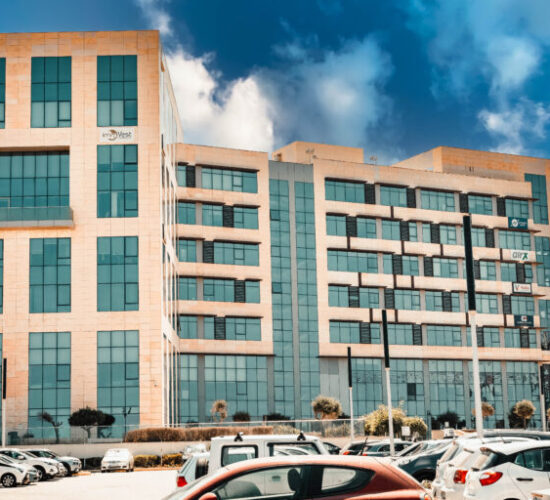We value your privacy
We use cookies to enhance your browsing experience, serve personalised ads or content, and analyse our traffic. By clicking "Accept All", you consent to our use of cookies.
We use cookies to help you navigate efficiently and perform certain functions. You will find detailed information about all cookies under each consent category below.
The cookies that are categorised as "Necessary" are stored on your browser as they are essential for enabling the basic functionalities of the site. ...
Necessary cookies are required to enable the basic features of this site, such as providing secure log-in or adjusting your consent preferences. These cookies do not store any personally identifiable data.
No cookies to display.
Functional cookies help perform certain functionalities like sharing the content of the website on social media platforms, collecting feedback, and other third-party features.
No cookies to display.
Analytical cookies are used to understand how visitors interact with the website. These cookies help provide information on metrics such as the number of visitors, bounce rate, traffic source, etc.
No cookies to display.
Performance cookies are used to understand and analyse the key performance indexes of the website which helps in delivering a better user experience for the visitors.
No cookies to display.
Advertisement cookies are used to provide visitors with customised advertisements based on the pages you visited previously and to analyse the effectiveness of the ad campaigns.
No cookies to display.

Executive MBA degree programs are designed to deliver a broad understanding of general management and administration, just as traditional MBA programs do. However, traditional MBA curricula are designed for early-career professionals, while Executive MBA programs target mid and later-career professionals with significant professional experience at the managerial level and above. Accordingly, EMBA curricula bypass content that a seasoned professional should already know. EMBA coursework tends to be more concentrated and more advanced than traditional MBA content. Instructors expect EMBA students to contribute substantially to course discussions, drawing upon the knowledge and skills they’ve acquired in business to guide and drive instruction.
| Intakes 2025 | ||
|---|---|---|
| Intake Month | Intake Start Date | Application Close Date |
| January | Monday, 6 January 2025 | Monday, 21 October 2024 |
| March | Monday, 10 March 2025 | Friday, 13 December 2024 |
| June | Monday, 23 June 2025 | Friday, 11 April 2025 |
| October | Monday, 6 October 2025 | Friday, 1 August 2025 |
The objective of our EMBA program is to develop mid-career professionals and emerging managers into complete executives capable of applying advanced leadership practice in the global marketplace. We don’t stop at management skills and insights, however. In keeping with our core values of excellence, leadership, truth, and service, the EMBA aims to cultivate business leaders who can develop financially healthy growth companies while acting with the highest level of character, integrity, and purpose and promoting socially responsible business practices.
| Accredited Status | Type of Qualification | Mode of Delivery |
|---|---|---|
| Accredited by the MFHEA | Master degree | Face-to-face |

Program content is designed to transform business professionals into C-Suite executives, competent leaders, and an asset to any company for which they work.
Accredited by the Malta Further and Higher Education Authority ( MFHEA)
Level 7
Masters degree
90 ECTS
12 months
Middle to Senior organisational managers in commercial for-profit organisations, the public sector and the voluntary sector.
Prior to entering the Master’s programme of study with the College, applicants should normally possess:
Students whose first Language is not English and who have not previously been exposed to spoken and written English at a reasonably advanced level will normally be required to demonstrate an English competence of IELTS 6.0 or equivalent. The College may undertake a video interview with the prospective student to better understand their English proficiency and, where appropriate, may also require a Medium of Instruction certificate from the student’s previous educational institution. The English language proficiency requirement may be waived if the student is a native speaker of English and they have completed their secondary education in a country where English is the official language or English was the language of instruction where they graduated.
Applicants are strongly encouraged to have two or more years’ relevant work experience, although this need not necessarily be continuous, and may have been undertaken on a voluntary or unpaid basis.
| Module Name | EQF/MQF level | ECTS | Total hrs of learning |
| Marketing in practice | 7 | 8 | 200 |
| Accountancy and finance | 7 | 8 | 200 |
| Strategic Management | 7 | 8 | 200 |
| Leadership | 7 | 8 | 200 |
| e-Business | 7 | 8 | 200 |
| Global Purchasing & Supply | 7 | 8 | 200 |
| Enterprise for Managers | 7 | 8 | 200 |
| Human Resource Management in Practice | 7 | 8 | 200 |
| Major Project | 7 | 26 | 650 |
Module Teaching & Assessment for all modules except Dissertation
The module will normally have the following assessment regime:
– Written examination: this will typically account for some 40% of the final grade and takes the form of a written examination under controlled conditions.
– Individual Essay(s): this will typically account for some 40% of the final grade and takes the form of a specialised essay. Students will be required to explore an emerging trend or topic within the theory and practice of the module discipline. This will require an extensive search of the relevant academic and practitioner-based literature and students will need to make reference to both academic and industrial/practitioner sources in their written work.
– Group work: this will typically account for some 20% of the final grade and takes the form of a report. A selection of the groups will be invited to present or pitch at the end of the module to a panel.
Module Teaching & Assessment for Dissertation
Each student will be allocated a supervisor who will help them with the development of their project proposal, oversee progress with the project, comment as appropriate on draft materials produced by the student and be available to assist the student with the project, as appropriate.
The dissertation/major project is assessed via the production of a dissertation of some 10,000 to 12,000 words in length.
Where necessary, a viva voce will be conducted in those instances where the provisional mark is considered to be a marginal pass.
To successfully complete the module an overall pass mark of 40% must be achieved.
All assessments will be submitted via the internationally recognised plagiarism software Turnitin.
English
For Local/EU Students:
| Tuition Fees | Registration Fees | 70% Refund | Net Fee |
|---|---|---|---|
| €6,500 | €250 | €4,550 | €1,950 |
For International Students:
| Tuition Fees | Registration Fees |
|---|---|
| €8,250 | €250 |
Fees include:
Registration for programmes can be made either online or by hand. For more information please visit the Admissions Section here.
Link to Identity Malta’s VISA Requirement for third country nationals: https://www.identitymalta.com/unit/central-visa-unit/